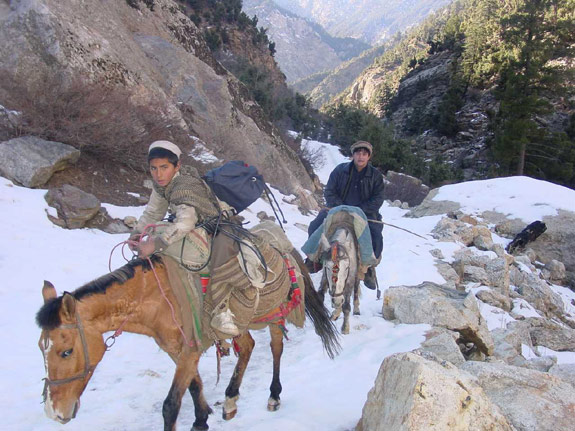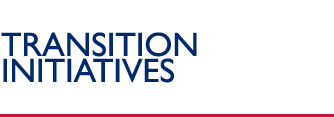Transition Initiatives
Background
With the fall of the Berlin Wall and the disintegration of the Soviet Union, countries across the globe entered a period of dramatic change. Whether in Central Europe, Africa, Asia or Latin America, authoritarian regimes succumbed to the forces of democracy, ethnic and religious groups fought for control over states, and longstanding rivals moved from the battlefield to the negotiating table. It quickly became apparent that choices made during these transition periods had enormous influence on a country's future. Yet it was also clear that traditional forms of humanitarian aid and development assistance were not suited to these new challenges. There was no established mechanism for meeting the rapid-response needs of the new era, such as stabilizing democratic transitions, mitigating conflict, or reconstructing war-torn nations.
 |
An OTI trainer helps deliver a Codan radio system
to Nooristan Province, Afghanistan.
|
The Office of Transition Initiatives (OTI) was therefore created within USAID's humanitarian bureau in 1994 to provide fast, flexible, short-term assistance to take advantage of windows of opportunity to build democracy and peace. It lays the foundations for long-term development by promoting reconciliation, jumpstarting economies and helping stable democracy take hold.
To succeed in this task, OTI instituted a distinctive mode of operations. First, OTI specifically encouraged a culture of risk-taking, political orientation, and swift response among its staff and partners. This culture is reflected in a strategic approach that continually incorporates best practices and lessons learned. Second, OTI is funded by a separate "Transition Initiatives" budget account with special authorities that allow immediate spending where it is most needed. Finally, OTI created an innovative contracting mechanism that preserves the principle of competition while allowing quick start-up in new countries and direct grants to small, indigenous organizations.
Examples of OTI programs
- Supporting community development programs that encourage political participation of previously marginalized groups and link constituents with their elected representatives
- Funding reintegration of ex-combatants into their communities as productive citizens
- Backing alternative media and public information campaigns to encourage peace, reconciliation, and informed participation in elections
- Assisting local efforts to fight corruption and promote transparent, accountable governance
- Helping governments develop action plans for key reforms, translating ideas into practice
- Encouraging measures to bring the military under civilian democratic control
- Building the capacity of civil society organizations to effectively engage government officials in dialogue and debate
- Promoting human rights through education, advocacy, monitoring, reporting, and services to survivors of rape and torture
- Helping national governments manage their strategic natural resources transparently, responsibly and equitably to avoid illegal exploitation and trafficking
- Supporting local efforts to mitigate and manage ethnic and religious conflict through training, improved communication and confidence-building measures
- Providing opportunities for children and adolescents to engage in constructive and educational activities, reducing their vulnerability to illegal recruitment in armed forces and other forms of exploitation and abuse
For more information on OTI and its activities, please consult these pages:
|




